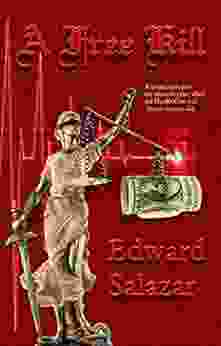Behavioral Corporate Finance: MBA Course Model Paper 12

Behavioral corporate finance is a field of study that examines the psychological factors that influence financial decision-making. Traditional corporate finance models assume that managers are rational actors who make decisions in the best interests of the firm. However, behavioral corporate finance research has shown that managers are often influenced by emotions, biases, and heuristics, which can lead to suboptimal decision-making.
This MBA course model paper provides a comprehensive overview of behavioral corporate finance. The paper will explore the following topics:
- The psychological foundations of behavioral corporate finance
- The impact of emotions on financial decision-making
- The role of biases and heuristics in financial decision-making
- Applications of behavioral corporate finance to real-world problems
The psychological foundations of behavioral corporate finance are based on the field of behavioral economics. Behavioral economics is a branch of economics that studies the psychological factors that influence economic decision-making. Behavioral economists have found that people are often irrational and make decisions that are not in their best interests.
5 out of 5
| Language | : | English |
| File size | : | 3484 KB |
| Text-to-Speech | : | Enabled |
| Enhanced typesetting | : | Enabled |
| Word Wise | : | Enabled |
| Print length | : | 121 pages |
There are a number of psychological factors that can influence financial decision-making. These factors include:
- Emotions: Emotions can have a powerful impact on financial decision-making. For example, fear can lead investors to sell stocks at a loss, while greed can lead them to buy stocks at a high price.
- Biases: Biases are cognitive shortcuts that can lead to errors in judgment. For example, the confirmation bias leads people to seek out information that confirms their existing beliefs.
- Heuristics: Heuristics are simple rules of thumb that people use to make decisions. For example, the representativeness heuristic leads people to judge the probability of an event based on how well it represents their mental model of the event.
Emotions can have a significant impact on financial decision-making. For example, fear can lead investors to sell stocks at a loss, while greed can lead them to buy stocks at a high price.
There are a number of studies that have shown the impact of emotions on financial decision-making. For example, one study found that investors who were exposed to negative news about the stock market were more likely to sell their stocks, even if the news was not relevant to their own investments.
Another study found that investors who were feeling greedy were more likely to buy stocks that were overpriced.
Biases and heuristics are cognitive shortcuts that can lead to errors in judgment. For example, the confirmation bias leads people to seek out information that confirms their existing beliefs. The representativeness heuristic leads people to judge the probability of an event based on how well it represents their mental model of the event.
There are a number of biases and heuristics that can influence financial decision-making. These biases and heuristics include:
- The availability heuristic: The availability heuristic is a cognitive shortcut that leads people to judge the probability of an event based on how easily it comes to mind. For example, people are more likely to believe that a stock will go up in value if they can easily remember past instances of the stock going up in value.
- The anchoring bias: The anchoring bias is a cognitive shortcut that leads people to use an initial piece of information as a reference point for making decisions. For example, if an investor sees a stock trading at $100, they may be more likely to believe that the stock is overvalued if it was previously trading at $50.
- The framing effect: The framing effect is a cognitive shortcut that leads people to make different decisions depending on how information is presented. For example, investors are more likely to invest in a stock if it is framed as a gain rather than a loss.
Behavioral corporate finance can be applied to a variety of real-world problems. For example, behavioral corporate finance can be used to:
- Improve investment decisions: Behavioral corporate finance can help investors to make better investment decisions by understanding the psychological factors that influence their decision-making. For example, investors can learn to avoid the confirmation bias by seeking out information that challenges their existing beliefs.
- Design better financial products: Behavioral corporate finance can help financial institutions to design better financial products by understanding the psychological needs of their customers. For example, financial institutions can design products that are less likely to be affected by emotional decision-making.
- Regulate the financial industry: Behavioral corporate finance can help regulators to design regulations that are more effective at protecting investors. For example, regulators can use behavioral corporate finance to understand the psychological factors that lead investors to make mistakes.
Behavioral corporate finance is a rapidly growing field of study that has the potential to improve financial decision-making. By understanding the psychological factors that influence financial decision-making, we can make better investment decisions, design better financial products, and regulate the financial industry more effectively.
This MBA course model paper has provided a comprehensive overview of behavioral corporate finance. The paper has explored the psychological foundations of behavioral corporate finance, the impact of emotions on financial decision-making, the role of biases and heuristics in financial decision-making, and applications of behavioral corporate finance to real-world problems.
5 out of 5
| Language | : | English |
| File size | : | 3484 KB |
| Text-to-Speech | : | Enabled |
| Enhanced typesetting | : | Enabled |
| Word Wise | : | Enabled |
| Print length | : | 121 pages |
Do you want to contribute by writing guest posts on this blog?
Please contact us and send us a resume of previous articles that you have written.
 Book
Book Novel
Novel Page
Page Chapter
Chapter Text
Text Story
Story Genre
Genre Reader
Reader Library
Library Paperback
Paperback E-book
E-book Magazine
Magazine Newspaper
Newspaper Paragraph
Paragraph Sentence
Sentence Bookmark
Bookmark Shelf
Shelf Glossary
Glossary Bibliography
Bibliography Foreword
Foreword Preface
Preface Synopsis
Synopsis Annotation
Annotation Footnote
Footnote Manuscript
Manuscript Scroll
Scroll Codex
Codex Tome
Tome Bestseller
Bestseller Classics
Classics Library card
Library card Narrative
Narrative Biography
Biography Autobiography
Autobiography Memoir
Memoir Reference
Reference Encyclopedia
Encyclopedia Jamie S Dreyer
Jamie S Dreyer Jan M Broekman
Jan M Broekman Jamie Gold
Jamie Gold Jeff Leach
Jeff Leach Janet Feil
Janet Feil Janice Irwin
Janice Irwin Jane Gitlin
Jane Gitlin James Falkner
James Falkner Jamie Rizzo
Jamie Rizzo James L Moody
James L Moody James Li
James Li Jayme Lynn Blaschke
Jayme Lynn Blaschke James Tooley
James Tooley Jean Larch
Jean Larch Jamie Wolf
Jamie Wolf Jason G Miles
Jason G Miles James R Gillespie
James R Gillespie James L Creighton
James L Creighton Janna C Merrick
Janna C Merrick James Curcio
James Curcio
Light bulbAdvertise smarter! Our strategic ad space ensures maximum exposure. Reserve your spot today!

 Allan JamesHistory: Why It Matters by James Baikie - A Must-Read for Understanding Our...
Allan JamesHistory: Why It Matters by James Baikie - A Must-Read for Understanding Our... Ruben CoxFollow ·10.5k
Ruben CoxFollow ·10.5k Kendall WardFollow ·6.9k
Kendall WardFollow ·6.9k Hank MitchellFollow ·16k
Hank MitchellFollow ·16k Garrett BellFollow ·9.1k
Garrett BellFollow ·9.1k Samuel Taylor ColeridgeFollow ·19.2k
Samuel Taylor ColeridgeFollow ·19.2k Steven HayesFollow ·6k
Steven HayesFollow ·6k Oliver FosterFollow ·13.8k
Oliver FosterFollow ·13.8k Kazuo IshiguroFollow ·2.4k
Kazuo IshiguroFollow ·2.4k

 Jacob Foster
Jacob FosterPrinciples and Persons: The Legacy of Derek Parfit
Derek Parfit's 1984 book,...

 Leo Mitchell
Leo MitchellPartners For Life: Raise Support For Your Missionary Work...
Are you a missionary or ministry leader...

 Blake Kennedy
Blake KennedyOn Desperate Ground: A Gripping Account of World War II's...
Hampton Sides' "On...

 Duane Kelly
Duane KellyCriminal Minds Sociopaths Serial Killers And Other...
In the realm of criminology,...

 Craig Blair
Craig BlairHome Repair: The Ultimate Guide to Fix, Maintain, and...
Welcome to the...

 Elmer Powell
Elmer PowellThe Organic Grower Guide to Mycorrhizae Science for...
Unlock the Secrets of Soil...
5 out of 5
| Language | : | English |
| File size | : | 3484 KB |
| Text-to-Speech | : | Enabled |
| Enhanced typesetting | : | Enabled |
| Word Wise | : | Enabled |
| Print length | : | 121 pages |










